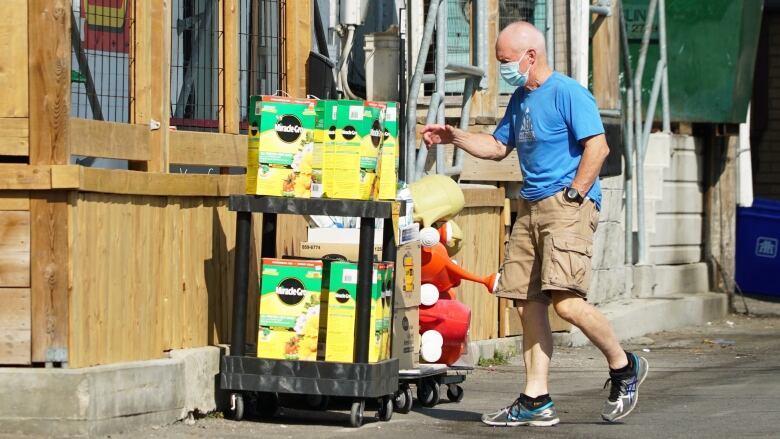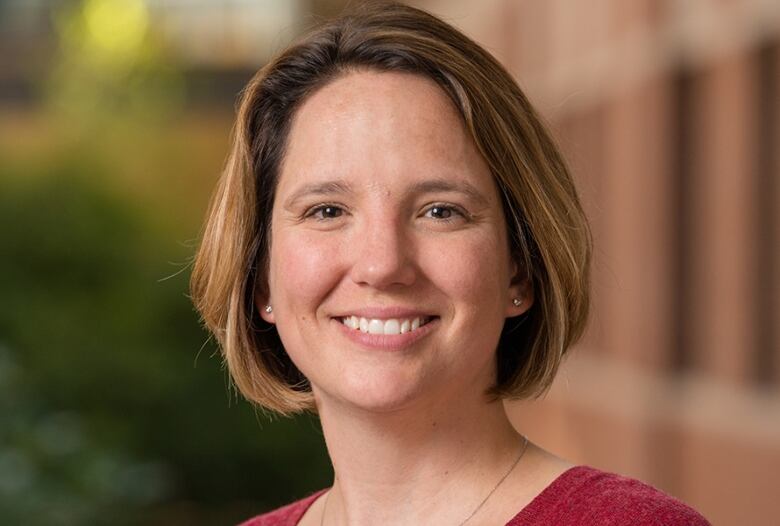Hospitalizations jump as Waterloo region reports 63 new COVID-19 cases Thursday
Region announces it won't enter step 2 of reopening plan next week

There were 63 new COVID-19 cases reported Thursday afternoon by public health afterthe Region of Waterlooannounced it would not enter step two of the provincial reopening next week.
Region of Waterloo Public Health also reported two COVID-related deaths, a manin his 50s and a manin his 60s.Dr. Hsiu-Li Wang, the region's medical officer of health, offered her condolences to the family and friends of the two men. It brought the total number of COVID-related deaths in the region to 262.
The number of people in the region's hospitals also jumped by nine cases to 61, with 24 people in the intensive care unit, an increase of three from the previous day.
There were 504 active cases. There were 63 cases marked as resolved.
Numbers tweeted earlier in the day by Health Minister Christine Elliott showed there were296 cases in the province with 95 in Waterloo region, well above the35 cases in Toronto, 20 in Peel region, 19 in Hamilton and 17 in Ottawa.
The numbers from the region differ from the province based on when they're taken from the database. The province reports numbers from the evening before. The region reports numbers from 12 a.m.
The region announced Thursday it will not be entering step two of the Ontario reopening plan next Wednesday with much of therest of the province.
Wangsays the move to hold back on entering step two is to give people more time to get vaccinated.
"This approach gives us the best chance to hold onto the gains we have made," Wang said in a release Thursday morning. "I anticipate the Region of Waterloo will be able to move into step twoin mid-July."
Variants of concern
The region reported 3,578cases have screened positive for a mutation or variant. Of those:
- 3,072were the alpha variant, or the B117 variant, first detected in the U.K., unchanged from the previous day.
- 122were the delta variant, or B1617 variant, first detected in India. This was a rise of one case.
- 61 were the P1 variant first detected in Brazil, which is unchanged.
- 11 were the B1351 variant first detected in South Africa, also unchanged.
- 312cases have a mutation detected, but more testing is required.
17outbreaks
There were 17outbreaks in the region.
Nine were at workplaces:
- Two at trades and related services workplaces: One with six cases, one with two cases.
- Two at retail stores: One with five cases, one with two cases.
- One at an office with eight cases.
- One at a food processor with seven cases.
- One at a construction site with three cases.
- One at an automobile sales and service business with two cases.
- One at a manufacturer with two cases.
The other outbreaks were:
- One at a congregate setting for people who are homeless over multiple locations with 106cases.
- One at The Village at Winston Park long-term care home with 11cases: Sevenin people living at the home, four in people who work there. There is one death associated with this outbreak.
- Two at other congregate settings with one case at each.
- One at a home childcare with three cases.
- One at Kaljas Home, an independent living facility in Kitchener, with one case.
- Two areat Grand River Hospital.The number of cases was not released.
Longer wait may offer'optimal protection'
Wilfrid Laurier University immunology researcher Stephanie DeWitte-Orr explained in an interview on CBC K-W's The Morning Edition that the delta variant, which is spreading in the community,"is really, really efficient at entering human airway cells."
"Ifyou breathe in this virus, it's a high chance that this virus will get into your airway cells," she said, adding it's also "more efficient at making more copies of itself" than other variants.
She said people may also want to be extra cautious after receiving their vaccine for longer than two weeks. DeWitte-Orr noted a study out of Scotland, published June 14 in The Lancet, showed when it came to the delta variant, researchers saw "optimal protection from the vaccine 28 days after vaccination, not 14 days" after the first dose.

The delta variant is the dominant strain in Scotland and the study looked specifically at people who receivedtwo doses of the Pfizer-BioNTech and Oxford-AstraZeneca vaccines.
Researchers found that at least two weeks after the second dose, the Pfizer-BioNTech vaccine provided 79 per cent protection against infection from the delta variant, compared with 92 per cent against the alpha variant, also known as B117, which was first detected in the U.K.
When it came to the Oxford-AstraZeneca vaccine, it offered60 per cent protection against infection with the delta variant after the second dose compared to73 per cent for the alpha variant.
The researchers said the lower vaccine effect may reflect that is takes longer to develop immunity with Oxford-AstraZeneca.
A release from the University of Edinburgh noted: "Vaccines were found to reduce the risk of being admitted to hospital, but strong protective effects against the delta variant were not seen until at least 28 days after the first vaccine dose."
"I think to date, we've been pretty comfortable with 14 days after you get vaccinated, you should be considered ... protected. But this study showed that 28 days was a better timeframe in order to consider yourself protected," DeWitte-Orr said.
Listen to the full interview with Stephanie DeWitte-Orr:












_(720p).jpg)


 OFFICIAL HD MUSIC VIDEO.jpg)
.jpg)



























































































